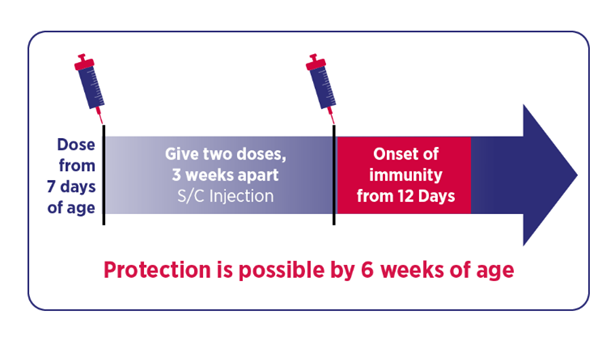News
27th Aug 2025
Health strategy group and collaboration with Bishopton Vets
This month also saw the launch of our Core Warrendale Vaccination Programme with Bishopton Vets, with Mycoplasma bovis being the focus.
Mycoplasma bovis
According to NADIS, cattle-related pneumonia is likely to cost the industry around £50m annually. Not only does it affect the productivity of cattle, it can lead to losses on farm. It is particularly a risk for calves and youngstock. Worse still, it can affect a number of animals in a herd, given it is a respiratory disease and is common when stock is housed together. One form of pneumonia, (Caseo-necrotic) can occur as a result of M. bovis. Zoetis suggests that prevalence in the UK calf population of M bovis could be as high as 65% in beef and dairy herds.
Consequences of M. bovis in the herd
M bovis can cause wide spread health problems in the herd, especially for calves reared in group settings. This can lead to increased use of antibiotics, a decrease in productivity (growth) and other issues such as arthritis, mastitis and lung damage.
Working with Bishopton Vets
We are working with Bishopton Vets, as part of our Health Strategy Group to understand the ways we can best protect the Wagyu herd and support farmers to have as productive animals as possible. Working with a well-regarded veterinary practice ensures we are making the best decisions.
The world’s only vaccine for M.bovis
From August 2025, we are rolling out a vaccine trial (Protivity from Zoetis) with our producers and rearers. A need to trial an approach was echoed in our recent farmer survey, with a number of farmers raising concerns about the risk of Mycoplasma bovis in the herd.

The vaccine is given in one dose to calves at a week old, with a second dose after three weeks. Immunity starts from 12 days after the second dose, and protection is then possible by around six weeks of age.
Vaccination is only part of the story
Whilst having access to only the available vaccine for M.bovis will help protect calves, it is still important to use this alongside high welfare practices such as:
-
- Follow colostrum protocols, including removing waste colostrum or milk regularly
-
- Ensuring calves have access to a clean water source
-
- Disinfect calf pens and feeding equipment regularly
-
- Isolate sick calves rapidly
How do farmers participate?
We have been getting in touch with Warrendale’s producer and rearer communities to invite them to participate in the programme via email and are running a webinar on the initiative. Check out our events page for more information.
 GO BACK
GO BACK




